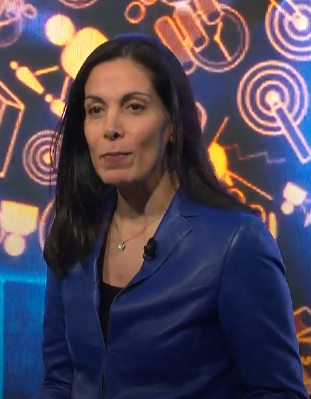If you thought freedom of speech was worth preserving, next comes freedom of thought: perspective
Thanks to AI and the Internet of Bodies (IoB) ecosystem, decoding the human brain is already well underway, according to a World Economic Forum (WEF) presentation.
Five years after historian Yuval Noah Harari told the WEF that humans were hackable and that organisms were algorithms, Harari’s insights have been fully realized.
Thursday’s WEF Annual Meeting 2023 session on “Ready for Brain Transparency?” opened with a short video showing a dystopian scenario where employees’ brainwaves were not only decoded to determine their performance in the workplace, but also to determine whether they participated in illegal activity.
While the scenario in the video below is fictional, the technological framework is already in place.
“We can pick up and decode faces that you’re seeing in your mind — simple shapes, numbers, your PIN number to your bank account” — Nita Farahany, World Economic Forum, 2023
“Artificial intelligence has enabled advances in decoding brain activity in ways we never before thought possible” — Nita Farahany, World Economic Forum, 2023
The above video illustrates just one of the many dystopian scenarios that can occur when the human brain is no longer autonomous.
In her presentation at Davos on Thursday, Nita Farahany from Duke University explained that the technology to decode brainwaves already existed and was currently being rolled out in some use cases.

“What you think, what you feel — it’s all just data — data that in large patterns can be decoded using artificial intelligence” — Nita Farahany, World Economic Forum, 2023
“Artificial intelligence has enabled advances in decoding brain activity in ways we never before thought possible,” said Farahany.
“What you think, what you feel — it’s all just data — data that in large patterns can be decoded using artificial intelligence,” she added.
And the devices to decode the human brain don’t have to be as invasive as a brain implant.
The devices can be as non-invasive as a “Fitbit for your brain.”
“We’re not talking about implanted devices of the future; I’m talking about wearable devices that are like Fitbits for your brain” — Nita Farahany, World Economic Forum, 2023
“We can pick up emotional states — like are you happy or sad or angry” — Nita Farahany, World Economic Forum, 2023
“We’re not talking about implanted devices of the future; I’m talking about wearable devices that are like Fitbits for your brain,” said Farahany.
“These are headbands, hats that have sensors that can pick up your brainwave activity, ear buds, headphones, tiny tattoos that you can wear behind your ear — we can pick up emotional states — like are you happy or sad or angry.
“We can pick up and decode faces that you’re seeing in your mind — simple shapes, numbers, your PIN number to your bank account.”
“Surveillance of the human brain […] has a dystopian possibility of being used to exploit and bring to the surface our most secret self” — Nita Farahany, World Economic Forum, 2023
Farahany would go on to say that while decoding the human brain had its benefits, it could also be used for very nefarious purposes.
“Surveillance of the human brain can be powerful, helpful, useful, transform the workplace, and make our lives better,” she said, adding, “It also has a dystopian possibility of being used to exploit and bring to the surface our most secret self.
“It threatens fundamentally what our own self-identity is in some ways, and threatens to become a tool of oppression.”
Article: Hackable humans at WEF: ‘We can decode faces in your mind, your PIN number to your bank account’
